Though we may still be plenty capable of taking care of ourselves no matter how old we get, it’s a sad fact that as we age, our bodies just can’t take the abuse that they could when we were 20.
Everybody should have a medical supply kit, and there are few extra items that seniors may want to throw in along with the bare-bones necessities.
Keep reading to find out the list you should follow to set up your medical supply if you’re a senior.
Trading medical skills and services may be a great way for you to contribute to your group or trade for things that you need, so if you’re stocked up, you’ve just made yourself more valuable.
Medical supplies tend to be pricey, but if you keep an eye on local sales, you can pick much of it for almost nothing (literally) if you combine sales with coupons. Sales tend to run in 6-week cycles. In other words, if peroxide is on sale this week, it will be on sale again in 6 weeks or so. Catch them when they’re on sale and stock your medicine cabinets for next to nothing.
Incidentally, and completely off topic, all hygiene products do that too. If you pay attention to sales and are willing to clip a few coupons, you’ll never run out of shampoo, soap, razors, toothpaste, or any of the other typically-expensive products. Since both medical and hygiene items may end up making great barter items, and you may not be able to perform such tasks as carrying wood, barter items are a great thing to have a plentiful supply of!
Building Your Basic First Aid Kit
Though these are available for purchase as entire kits, we prefer to build our own first aid and med-surge kits. That way, we can ensure that we have plenty of everything that we’ll need without having an entire box full of stuff that we’ll likely never use.
This is the Best Natural Painkiller, and Grows in your Backyard!
Just like with your stockpile, rotate the items in your medical kit so that bandages don’t dry rot and super-glue doesn’t harden. Yes, we said superglue. Have it in your kit because it makes a great substitute for stitches if you have to other alternative.Start with this list of items to carry in your box. Have plenty of backup stored in your stockpile, especially of items that you already use:
- 1 package fishing line, 8lb test
- 1” surgical tape
- 2” bandage – 1 roll – in a pinch, you can always roll 4” bandages in half
- 30-day supply of any life-sustaining prescription medication, more if obtainable
- 4” gauze bandage – 1 roll
- 550 parachute cord – 20 feet minimum. We like to actually have these made into bracelets and pet collars so that it’s decorative, handy, and doesn’t take up space in our kits
- 97% isopropyl alcohol – 1 bottle
- Ace wrap
- Acetaminophen 500mg
- Adhesive bandages – 1 box multi-size
- Alcohol pads – 10 packs minimum
- Antibacterial Ointment
- Anti-diarrheal
- Aspirin
- Aspirin 350mg
- Bandage scissors
- Benadryl – 1 box
- Burn cream – 1 tube
- Butterfly-type wound closure strips – 1 box
- Cayenne Pepper – can stop a heart attack and helps stop topical bleeding
- Denture adhesive
- Diabetic sugar tabs or individual packets of sugar
- Dial Liquid Gold Soap
- Epi-Pen – 1 if obtainable
- Extra bandages, especially stretchy ones. These are great for using as circulation wraps on your arms and legs should the need arise.
- Fiber to assist with bowel movements. This may not sound serious now, but impacted bowels can be a serious issue for older people who are experiencing stress and a drastically-altered diet.
- Gauze pads, 2×2
- Gauze pads, 4×4
- Hand sanitizer
- Heat packs
- Hemorrhoid cream
- Hemostats – 2 pair
- Hydrocortisone cream – 1 tube
- Hydrogen peroxide – 1 bottle
- Ibuprofen 500mg
- Ice packs
- Iodine
- Iodine – 1 bottle
- Kitchen-sized garbage bags – 1 roll – great for everything from carrying supplies to building a tent
- latex gloves – 5 pair minimum
- Magnifying Glass
- Matches
- Minimum 30-day supply of all medications
- Needles – 1 pack various sizes
- OB tampons – 10 – you can use them for their intended purpose or to pack wounds
- Pencil and small notebook
- Plain sugar – 2 packs standard or more if you’re diabetic
- Quik-Clot, 2 packs
- Razor blades – Single-edge, 1 box
- Safety pins – several large and small
- Saline solution – 1 bottle
- Scissors
- Super Glue
- Suture Needle
- Tooth wax – 1 pack
- Topical analgesic cream, 1 tube
- Treatments such as hot packs and rubs for sore muscles
- Triangular bandage to use as sling
- Tweezers – 1 pair
- White 100% cotton thread – 1 spool
- Zipper top plastic bags – 1 box – quart or gallon size
Have Extra Equipment
If you need special equipment on a day to day basis to help you see, eat, get around or otherwise make it through your day, it’s a good idea to have extras on hand in case your device gets lost or damaged in an emergency situation. Here are a few examples.
- Eyeglasses
- Canes or walkers
- False teeth
- Shower chairs
- Hearing aids (and batteries)
- Diabetic socks
- Diabetic testing supplies
- Safety rails
- Wheelchairs
Learn How to Replace Meds with Natural Alternatives
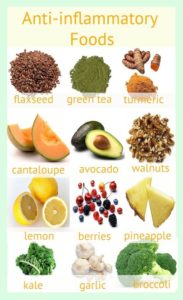 As seniors, having enough meds is of bigger concern because often the medications that you take are quite literally life-preserving. The good news is that there are some natural alternatives to some medications.
As seniors, having enough meds is of bigger concern because often the medications that you take are quite literally life-preserving. The good news is that there are some natural alternatives to some medications.
There are also a few handy tricks that can actually do just as good a job as the medication but for the most part, these are suggestions to naturally reduce or eliminate the condition that requires the medication.
Get more exercise, lose weight if you need to, eat healthier foods, reduce consumption of high-cholesterol, high-saturated fat foods and just take better care of yourself in general. It’s much better to not need medications to begin with than to try to find substitutions for them if SHTF and you don’t have access to a pharmacy.
Pain Killers and Anti-Inflammatories
Pain and swelling can make you miserable, but many meds cause further harm to your body (liver damage, increased risk of heart attack, cataracts, and macular degeneration). Here are a few substitutions to consider in case you don’t have access to your meds.
- Gingko Balboa has been used forever as a clotting agent and to improve circulation.
- Turmeric and Ginger both have anti-inflammatory and pain relieving properties.
- Vitamins B-6, D, and E all work as natural blood thinners. Natural vitamin E (100 IUs) works as well as aspirin as a blood thinner, and natural sources of E include spinach, tomatoes, mangoes, peanut butter, almonds, kiwi and sunflower seeds.
- Organic strawberries, pineapples, raisins, prunes, cranberries, blueberries grapes, oranges broccoli, avocados, cherries, Brussels sprouts, almonds, apple cider vinegar, and honey all work as blood thinners when incorporated as part of your diet. Dried fruits are actually best as blood thinners. High amounts of vitamin E are generally key.
- Fish oil works nearly as well as Coumadin to thin the blood, according to some research.
- Devil’s claw has been used in teas and tinctures for centuries as an anti-inflammatory and pain. reliever. It’s frequently used to treat arthritis, tendonitis, and muscle pain and stiffness.
- Herbs and spices that reduce inflammation include black pepper, cayenne pepper, basil, cardamom, chamomile, chives, cilantro, cinnamon, cloves, garlic, ginger, parsley, nutmeg, rosemary, and turmeric. Therapeutic dosages vary per herb and per person so if you need a natural anti-inflammatory, do your research.
- Water is one of the best blood thinners that you consume. It may sound cliché, but it’s true!
High Blood Pressure Meds
High blood pressure is one disease that is largely avoidable by practicing a healthy lifestyle. It’s one of the few diseases you can actually get rid of, too. In some cases, though, it’s genetic and you’re just going to have to deal with it. There are several natural approaches to controlling your blood pressure:
- Water plays a huge part in regulating your blood pressure. Make sure that you drink plenty of it!
- Potassium, Magnesium and Calcium play roles in sodium absorption, which is crucial to maintaining a healthy blood pressure. Consider stockpiling supplements but if you do, be careful. Too much potassium or magnesium can be lethal and too much calcium can cause kidney stones. No fun. Good natural sources of potassium include bananas, strawberries, cantaloupes and potatoes.
- Sodium is essential in your blood but unless you suffer from a handful of relatively rare conditions such as hyponatremia (low blood sodium), you need to watch your sodium intake as you get older because there’s a direct link between sodium intake and blood pressure. You can significantly reduce your blood pressure by reducing your sodium intake.
- Coenzyme Q10 naturally reduced blood pressure
- Garlic is just good all the way around. Eat it. Supplement with it if you don’t like to eat it.
- Hawthorn, Basil, Cinnamon, Cardamom, Celery Seed, French Lavender, and Cat’s Claw are all herbs that are linked to reducing blood pressure.
Antacids
Heartburn and indigestion are frequent companions of those of us who no longer get carded for buying our wine and it’s an issue that’s plagued mankind since the first buffalo pterodactyl wings were served.
It’s often controllable by avoiding foods that cause it but not always. And it could be that you’re just not willing to give up those delicious sauces or fresh veggies that cause your chest to feel like it’s on fire. If so, no worries, even if SHTF, there are some natural cures.
- Almonds naturally reduce stomach acid. Much on a handful of them and you’ll feel better in 15-30 minutes. Plus they’re awesome for you.
- Aloe Vera Juice may not taste fabulous but it’s been used for ages to sooth stomach agues. This is great for survival purposes because aloe is easy to grow and is also great for treating burns and abrasions.
- Apple Cider Vinegar is almost as versatile as garlic and is one of those must-have stockpile items. To get rid of heartburn, drop a couple of tablespoons into a glass of water and drink it. A slice of fresh apple helps, too.
- Baking Soda, though not entirely pleasant to consume, will get rid of heart burn if you mix a teaspoon of it in a glass of water. Don’t use this often if you have high blood pressure because it can increase your sodium levels.
- Bananas are extremely soothing to your stomach. Plus they’re a good source of fiber. Handy tip – almost all of the vitamin K in a banana is found in the hard, dark tip that most of us throw away.
- Basil leaves, Chamomile, Cinnamon, Fennel, Garlic (yes again), Ginger, and Peppermint are all herbs or spices that will help get rid of heartburn or upset stomach.
- Buttermilk is an old wives’ cure but it works. Just sip a glass and you’ll feel better in no time.
Statins, aka High Cholesterol Meds
High cholesterol is another condition that you can often eliminate if you’re just willing to make some lifestyle changes. Get up, put down the cupcake, and exercise. If you’re one of the unfortunate people who do that but still deal with high cholesterol, here are some natural alternatives to chemical medications such as Lipitor and Zocor.
- Coconut oil and other medium-chain triglycerides are your best bet for fat because, unlike saturated fat, it raises good cholesterol right along with “bad” so that it balances out.
- Dark Chocolate, Soy Beans, Garlic, Olive Oil and Omega-3s all help to reduce cholesterol.
- Red wine is rich in resveratrol and other antioxidants that can help reduce cholesterol.
- Fiber-rich foods such as veggies and fruits help reduce cholesterol.
- Rosemary, ginger, turmeric, yarrow and holy basil are herbs that may help to reduce cholesterol.
Antibiotics
In a post-SHTF scenario, infections and diseases caused by bacteria are going to be huge issues. Particularly for people who may not have the strongest immune systems, the absence of antibiotics may turn out to be lethal. Having a sustainable source of natural antibiotics is simply logical.
Several different natural antibiotics are easy to grow. Some treat a wide range of conditions while others are suited to specific infections. Either way, learn how to use these before you just eat them or make tea because “natural” does not imply “safe”.
Remember, arsenic is a naturally-occurring mineral! Many times, herbs can cure you in a small dose or kill you in a large one so study up and have a herbal guide in your medicine kit for reference purposes.
- Honey is a natural topical antibiotic, antiviral, antimicrobial and antifungal. Rub it right onto the wound to protect it from infection and to kill bugs that are already trying to cause trouble.
- Goldenseal (Hydrastis) is an herb native to the northwest US. It’s used to treat sore throats and digestive infections that cause diarrhea. It’s also useful for soothing and treating respiratory, digestive tract, and genitourinary infections.
- Oregon Grape is also native to the Northwest US and contains berberine which keeps harmful bacteria from sticking to the walls of your intestinal or urinary tract. Drink it like a tea to sooth and treat UTIs or take a liquid tincture or dried capsule to fight bacteria that cause digestive conditions such as infectious diarrhea.
- Andrographispaniculata is an Asian herb that’s been shown in modern studies to disrupt the quorum-sensing system of bacteria. This is basically the homing beacon that pulls bacteria to each other so that they can set up camp and really do some damage. It’s commonly used to treat upper respiratory infections and sinus problems.
- Horseradish is used to successfully treat urinary tract infections, respiratory infections and sinusitis.
- Turmeric has a ton of research that supports its effectiveness as an antibacterial. It’s effective against Bacillus cereus, Bacillus coagulants, Bacillus subtilis, Staphylococcus aureus, E. coli, and Pseudomonas aeruginosa.
- Ginger has been used historically, and has medical studies backing it, for treating respiratory infections and infections in the mouth caused by pathogens.
Some people prefer to store their first aid supplies in a 5-gallon bucket. We personally prefer to use a more traditional case that opens in such a manner as to display the contents. We like the cases better because in an emergency, you can just open it up, look for what you need, and grab it.
If all of your supplies are in a bucket, you’ll need to dump the bucket out in order to find what you need, then put it all back in. At the very least, you’re wasting time and at the worst, you’re contaminating the contents of your kit.
How’s your medical supply? Are you ready to face a disaster with what you have at the moment? Or are you going to rely entirely on your skills and on what nature can provide you for survival?





























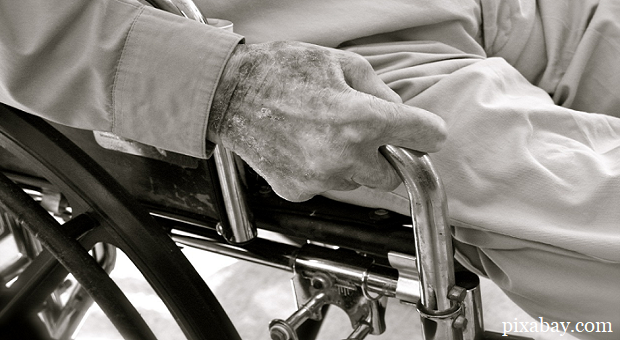
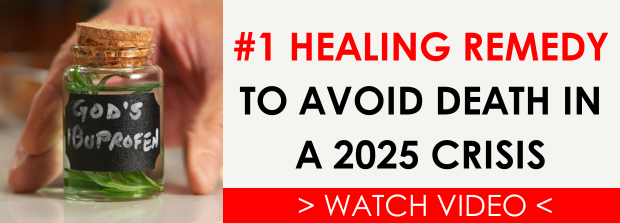
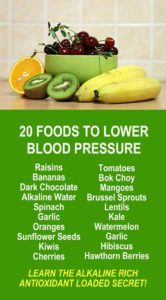
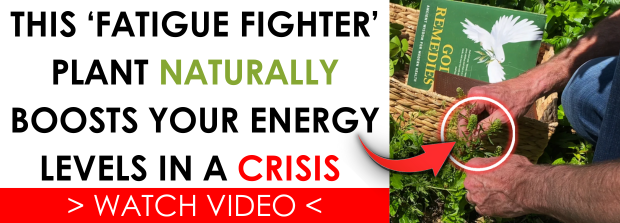




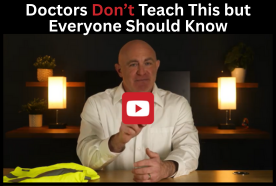
























































HELLO, Theresa C. – You Provided a Very Good Selection of Information – Useful, even Vital. Just an Important Note or two: 1. For Anyone of Any Age who is taking Cardio-Pulminary Meds (Prescription – as I am) – Aspirin (Any Size – 80-350) is Deadly – and Ibuprofen 500mg (or Any Size) is virtually as Dangerous ! Repeated usage of Acetaminophen (Tylenol) is dangerous, too. -and- 2. Instead of “packets of sugar” which are clorinated (bleach) and propenol coated, how about Organic Honey or Maple Syrup ? Take Care, and keep up the Good Work ! Bill
Bill,, Take a look at Dr. Gundry’s website, when you get the chance, listen to his lengthy presentation, and see what you think? Long term high bp, statins, and most of all the other heart meds will kill you sooner than the heart condition itself.
Mahatma, I am Fearfully Aware of the Serious Risks from taking Heart Meds. In my case, If I Stop taking them, however, I will succumb to Atrial Blood Co-Agulation (A-Fib) and a Major Stroke within 6 Weeks – Its a Hell-of-a Choice. Thanks for the Input. Bill
For my family, we would never be without Colloidal Silver. It has been a miracle for us and our animals. We make our own with a small C.S. generator. It kills all known bacterial and viral infections and none of them are resistant to CS. Been using it for 11 years and have not had a single cold or flu. I keep it in a dark glass spray bottle. I spray on shot up each Nostril every night and 5 sprays into my mouth. No germs have survived. You can buy CS in most pharmacies, but it is really expensive. You can by a generator on Amazon and make it for pennies. Oh yea, it also cured my daughters sinus infection in 3 days flat. Doctor gave her antibiotics, which we just put into our meds storage. Sinus infections are viral and antibiotics only work on bacterial infections. In any emergency or grid down situation, this stuff would be worth its weight in gold.
With the easy availabily of non-latex items and the number of people allergic/reactiVe to latex , anything listing latex should be replaced, like niTrile gloves vice latex. Most hosPitals in my area went latEx-free years ago to avoid any issues.